Check out their new books on the first floor of Brooklyn Law School Library.
Brooklyn Law School Library is featuring our faculty’s new books in a rotating display at the first-floor circulation desk. All of these books are available for BLS patrons to check out. Many of these sources also are accessible digitally.
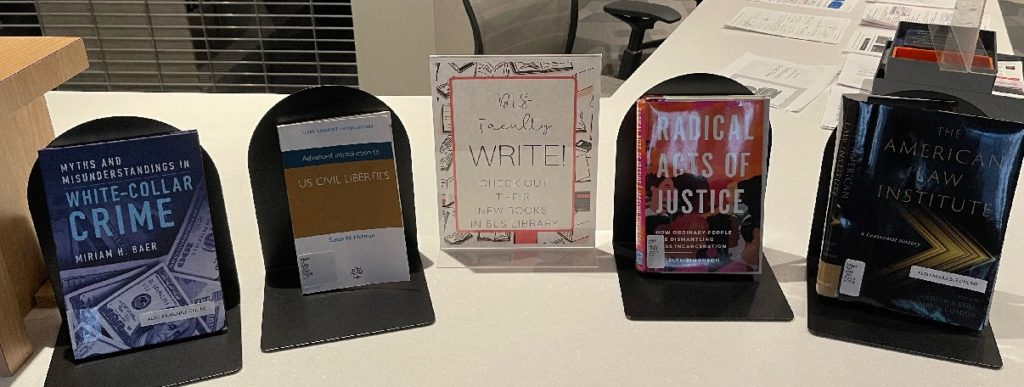
The first display showcases (in alphabetical order by author):
Miriam Baer, Vice Dean and Centennial Professor of Law, author of:
Myths and Misunderstandings in White-Collar Crime (Cambridge University Press, 2023)
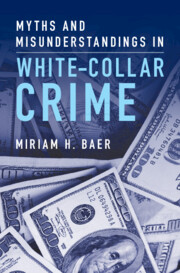
Upcoming event: Book discussion featuring Vice Dean Baer – more details coming soon.
Date/location: Oct. 17, 2023, Brooklyn Law School, 250 Joralemon Street, Brooklyn NY
Cambridge University Press book description:
“Myths and Misunderstandings in White Collar Crime uses real world examples to explore the pathologies that hamper our ability to understand and redress white-collar crime. The book argues that several misinterpretations about white-collar crime continue to impede its enforcement, including: its failure to be classified according to degrees of severity in many jurisdictions; its failure to statutorily parse groups of defendants into major and minor players; and the failure of statutes to effectively define crimes, leading to the prosecution of ‘unwritten’ crimes. Miriam Baer offers a step-by-step framework, informed by theories of institutional design and behavioral psychology, for redressing these misunderstandings through ‘code design,’ or paying greater attention to how we write, frame, and lay out our federal criminal code, as a roadmap to more coherent and useful laws. A clearer, subdivided criminal code paves the way for a discussion of white-collar crime unmarred by myths and misunderstandings.”
Andrew Gold, Professor of Law and Associate Director of the Center for the Study of Business Law and Regulation, co-editor (with Robert Gordon) of:
The American Law Institute: A Centennial History (Oxford University Press, 2023)
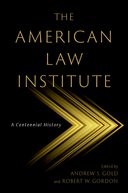
Related discussion of select topics in this book, featuring Professor Gold on this panel: 100th Anniversary Program: The American Law Institute – A Centennial History, 2023 Annual Meeting
Oxford University Press book abstract:
“This book collects together a series of original essays in honor of the American Law Institute’s (ALI’s) Centennial. The essays are authored by leading experts in their fields, often including current and former Restatement Reporters. The essays also provide a wide range of perspectives on both methodology and the law. The volume coverage focuses on specific ALI undertakings, including some of the more important Restatements and Codes; several leading Principles projects; statutory projects such as the Model Penal Code and the Uniform Commercial Code; themes that cut across substantive fields of law (such as Restatements and codification or Restatements and the common law); and the ALI’s institutional history over the past century. The resulting book is a unique and compelling contribution to its fields of study.”
Coming in October 2023: A BLS Library display commemorating American Law Institute’s 100th year anniversary and highlighting BLS faculty’s key contributions to ALI’s Projects.
Susan Herman, Centennial Professor of Law and former President of the American Civil Liberties Union, author of:
Advanced Introduction to US Civil Liberties (Edward Elgar Publishing, 2023)
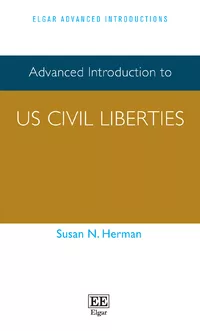
Upcoming event: Civil Liberties: The Next Hundred Years (in-person/virtual (via Zoom) panel discussion featuring Professor Herman and other civil libertarians)
Date/time/location: Oct. 13, 2023, 5:00 pm ET, Brooklyn Law School, Subotnick Center, 250 Joralemon Street, Brooklyn NY
Edward Elgar Publishing book description:
“This insightful Advanced Introduction provides a kaleidoscopic overview of key US civil liberties, including freedom of speech, press, assembly, and religion, limitations on search and seizure, due process in criminal proceedings, autonomy rights, rights of equality, and democratic participation.”
Jocelyn Simonson, Professor of Law and Associate Dean for Research and Scholarship, author of:
Radical Acts of Justice: How Ordinary People are Dismantling Incarceration (The New Press, 2023)
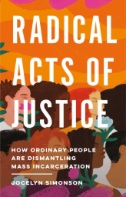
For digital access, click: here > in the library’s catalog record, click: ACCESS ONLINE VERSION – EBSCO. Remote access requires implementation of the BLS proxy server instructions. Call number and location of the circulating print book: KF9632 .S56 2023 in cellar-level Main collection. Also, there is a copy on first-floor Reserve.
Upcoming event: Jocelyn Simonson on Radical Acts of Justice at the Center for Brooklyn History
Date/time/location: Oct. 23, 2023, 6:30 pm ET, Center for Brooklyn History, 128 Pierrepont Street, Brooklyn NY
The New Press book description:
“From reading books on mass incarceration, one might conclude that the way out of our overly punitive, racially disparate criminal system is to put things in the hands of experts, technocrats able to think their way out of the problem. But, as Jocelyn Simonson points out in her groundbreaking new book, the problems posed by the American carceral state are not just technical puzzles; they present profound moral questions for our time.
Radical Acts of Justice tells the stories of ordinary people joining together in collective acts of resistance: paying bail for a stranger, using social media to let the public know what everyday courtroom proceedings are like, making a video about someone’s life for a criminal court judge, presenting a budget proposal to the city council. When people join together to contest received ideas of justice and safety, they challenge the ideas that prosecutions and prisons make us safer; that public officials charged with maintaining “law and order” are carrying out the will of the people; and that justice requires putting people in cages. Through collective action, these groups live out new and more radical ideas of what justice can look like.
In a book that will be essential reading for those who believe our current systems of policing, criminal law, and prisons are untenable, Jocelyn Simonson shows how to shift power away from the elite actors at the front of the courtroom and toward the swelling collective in the back.”
Feel free to email askthelibrary@brooklaw.edu, text (718) 734-2432, or visit the circulation desk for help accessing these new books.



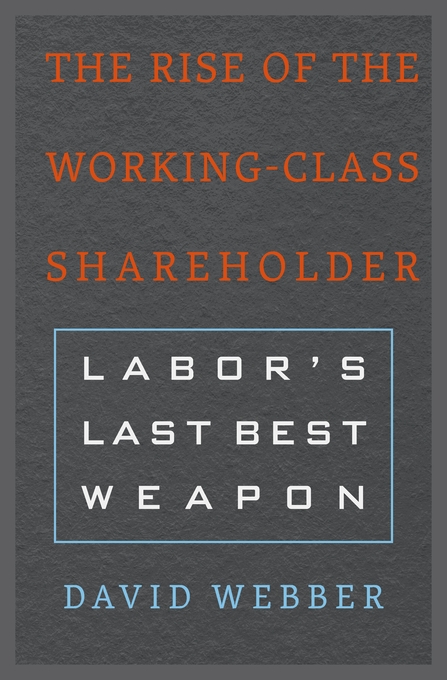
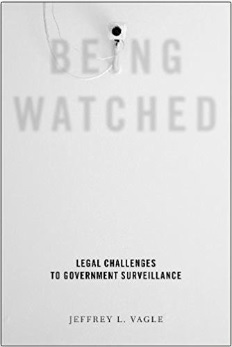
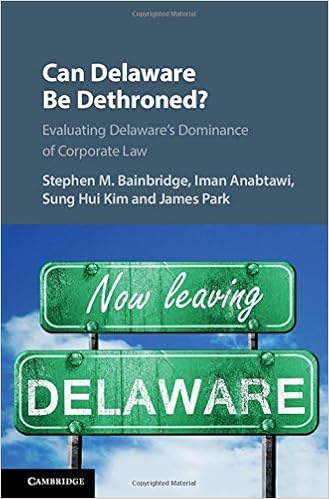 Among the February 1, 2017
Among the February 1, 2017  The Brooklyn Law School Library
The Brooklyn Law School Library  One title stands out:
One title stands out:  Brooklyn Law School Library’s
Brooklyn Law School Library’s  The second title is
The second title is  The Brooklyn Law School Library
The Brooklyn Law School Library